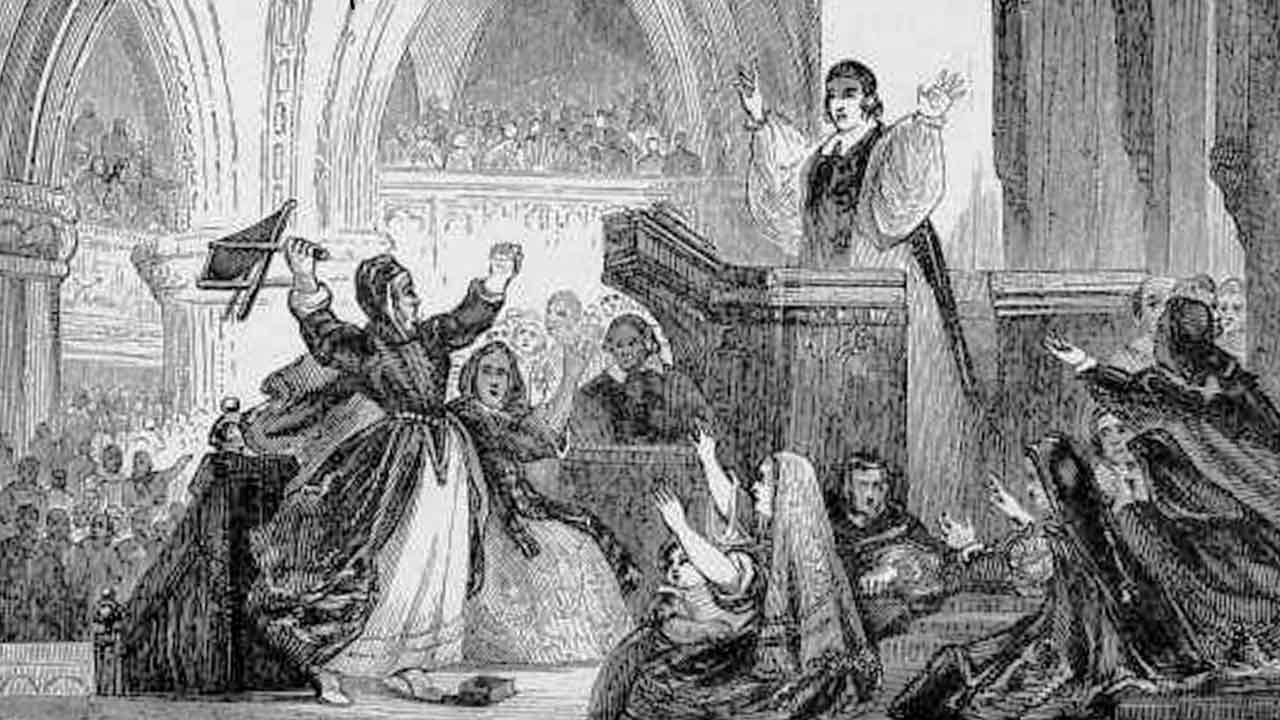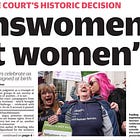Scottish Women Shall Fight The English Civil Gender Wars Until They Win
A review of 'The Women Who Wouldn't Wheesht'
Dalgety, Susan and Blackburn, Lucy Hunter, editors. The Women Who Wouldn't Wheesht: Voices from the Front-Line of Scotland’s Battle for Women’s Rights. Constable, 2024. (Amazon.com link)
According to tradition, in 1638 an Edinburgh market-woman named Janet ‘Jenny’ Geddes objected to changes in the Book of Common Prayer by throwing her stool at the minister of St. Giles’ Cathedral, setting in motion the spiral of events that led to the slaughters and tumults of the English Civil Wars. It has always been dangerous to take Scottish women for granted. No one should have understood this better than the Scottish National Party and its leader Nicola Sturgeon, a Scottish woman. Yet this is exactly what Sturgeon and the SNP did to prioritize and pass legislation written by the ‘gender identity’ lobby, leading to political disaster.
Sturgeon resigned in 2023 after stumbling through an awkward interview about a transgender-identifying rapist who had been housed in Cornton Vale, Scotland’s prison for women. Today, the SNP is a broken party and the Scottish independence project is probably over. Most recently, an organization called For Women Scotland (FWS) won an historic unanimous ruling from the supreme court of the United Kingdom upholding their challenge to an SNP policy that allowed men to ‘identify’ their way into committee positions set aside for women. The ruling has been a rude shock to transgender ‘rights’ activists across the UK who had been misled about the law for so long by their own lobby.
The odds were stacked against Scottish women. “Unbeknown to Sturgeon, and unnoticed by a civil society that no longer challenged government but instead amplified its core messages, women across Scotland, connected by online forums and social media that brought in UK connections too, were beginning to take notice of the potential clash of rights,” Susan Dalgety and Lucy Hunter Blackburn write. “If, as some politicians and commentators on the centre and left became fond of saying, Scotland was riven by a toxic ‘culture war’, it was not one of the women’s making. And not one in which those politicians showed any practical interest in trying to broker peace, despite repeated attempts by women to engage them on the issue.”
But Scottish women refused to be silent. Like Jenny Geddes, they would not wheesht. Raising hell was more their style. Despite the obstacles thrown in their way, the hatred and vitriol and attacks they received, the women of Scotland soldiered on. Calling upon the spirits of their suffragette foremothers, they took up space at Holyrood, demanded their rights, made their case, raised funds, and fought their civic battles together. They have not won every engagement, but they are winning the war, and they shall not stop fighting until they have won. Told they were on the wrong side of history, Scottish women made some history. This book tells the story.





